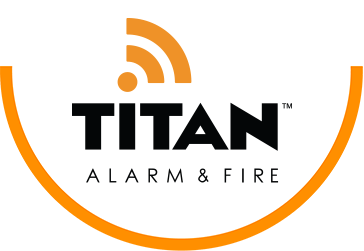While the internet can serve as an invaluable learning tool and offer other benefits for our children, its use does pose certain risks. As many as 20 percent of kids will be subjected to some form of cyberbullying, and predators use the Web as a vehicle to connect with kids and attempt to lure them to a meeting place. What’s more, kids can be exposed to various types of inappropriate content while they’re online.
Consequently, knowing how to keep kids safe on the internet is an essential component of parenting these days.
Tips About Internet Safety For Kids
The following cyber safety tips for kids can help you protect your youngsters while they’re online:
-
Establish a set of online activity rules:
You likely have rules in place for where your kids are allowed to go, what time they must be home, setting aside time for homework, etc. Set some rules for internet usage, such as when and how long they are allowed to be online each day. The more time kids spend online, the more susceptible they become to the Web’s “dark side.” It also limits the time they spend engaging in normal, healthy childhood activities such as playing outdoors or hanging out with friends. Set parameters regarding when and how often your kids can go online and be sure to strictly enforce them. Create a list of acceptable websites they can to visit without your permission and post it by the computer as a reminder.
-
Teach them how to safeguard their privacy:
Instruct your kids not to give out information such as email addresses, home addresses or telephone numbers online or to provide any type of personal information strangers. Many proud parents also love to share photos and other news about their kids on Facebook and other social media sites. Unfortunately, this can also negatively impact their privacy and potentially expose them to individuals with bad intent. Think twice before posting information about your kids, and be sure to use social media site privacy settings to limit what you share to only those people you know and trust.
-
Instruct them on basic computer security:
Teach your kids the fundamentals of computer security, such as logging out properly and creating challenging passwords that are difficult to crack. Also, warn them of the dangers of sharing their passwords with anyone, including their most trusted friends. If your kids are old enough to go online on their own, they need to learn about what constitutes safe — and even more importantly — unsafe Internet practices. Educate them regarding setting strong passwords, detecting phishing emails and the dangers of posting or responding to inappropriate messages and photos.A simple rule to teach your kids is not to do anything online that they wouldn’t do face-to-face. Also, instruct them how to recognize cyberbullying and other online threats — and to tell you about them immediately if they occur.
-
Set up your household computers in open areas:
Placing your computers in open, high-traffic areas such as a living room or family room enables you to more easily monitor your kids’ online activity. If you have multiple computers in your home, limit the number that are connected to the Web to one or two. While it may seem intrusive, keeping a close eye on their social media activity is a good way to protect kids’ online security. For instance, many parents require their children to provide them with the password in exchange for permission to establish a social media account. Another option is to have your kids make you a friend or contact on all social media sites they use. Software is also available that can monitor your child’s online activities.
-
Take advantage your browser’s parental controls:
Popular Web browsers such as Internet Explorer and Google Chrome give you the option to adjust the security settings to restrict access to certain sites unless the user has a password. One of the most important steps you can take to protect children online is installing a reliable Internet security suite such as Norton Internet Security on every computer in your home.These products contain numerous safety features such as a personal firewall, phishing protection and spam filtering. Various Internet filter software products are also available that can prevent your kids from visiting inappropriate sites.
-
Talk to them about what they post online:
As your kids progress through their teenage years, much of their online activity will probably consist of engagement in social media. Be sure to have a conversation with them regarding what is and is not appropriate to post online — even a seemingly innocent comment could antagonize others and even be construed as cyberbullying. It’s also important to keep the lines of communication open regarding internet safety. Let your kids know they can approach you if they come across something that concerns or upsets them while online.
-
Warn them about issues such as plagiarism and hacking:
While the internet can be of immense help when working on school projects and reports, your kids should have a basic understanding of issues such as plagiarism and copyright infringement. If your child is particularly tech-savvy, explain the potential consequences of hacking.
Contact Titan Alarm To Help Setup a Home Security System to Protect You and Your Children’s Privacy
Today’s generation of kids are exposed to the Internet virtually from birth. When used properly, the Web can serve as a valuable tool for educating and entertaining your children. However, Internet use can also leave your kids vulnerable to threats posed by sexual predators and cyberbullies — which can have serious and even tragic consequences. The good news is that you don’t have to resort to drastic measures like removing computers from your home or disconnecting the Internet to keep your children safe. Remember, it’s never too early to start protecting your kids’ online security — you’ll sleep better knowing you’re doing everything possible to keep your children safe.
Learn More About Home Security Safety and Your Family:
Updated by Titan Alarm on August 20, 2018






